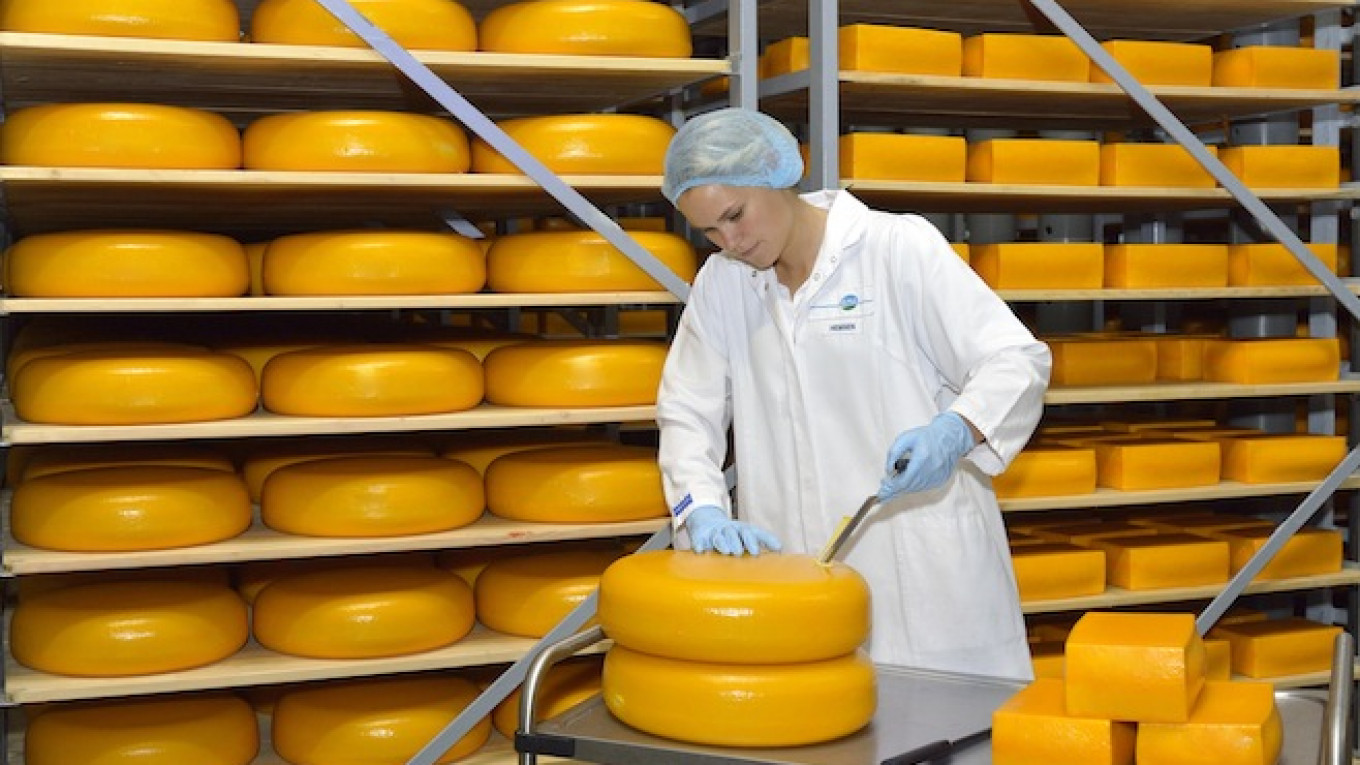An Extensive Consider Cheese Manufacturing: Active Ingredients, Methods, and the Future of Craftsmen Cheeses
The intricate process of cheese production is a remarkable convergence of art and scientific research, where top notch milk, rennet, and certain bacterial cultures offer as fundamental elements. As the market significantly focuses on sustainability and transparency, the future of artisan cheeses guarantees to reflect both heritage and progression.
Key Components in Cheese Production
A variety of essential ingredients play an essential duty in cheese manufacturing, each adding to the last product's flavor, structure, and personality. The key ingredient in cheese is milk, which can come from different resources, consisting of cows, goats, and lamb - cheese makers melbourne. The kind of milk utilized considerably affects celebrity's preference and uniformity; as an example, cow's milk generally yields creamier cheeses, while goat's milk typically creates tasty selections
Another essential active ingredient is rennet, an enzyme made use of to curdle the milk, dividing it into curds and whey. The source of rennet can be animal, vegetable, or microbial, each giving distinctive characteristics to the cheese. Cultures, including particular pressures of microorganisms, are also indispensable to the cheese-making procedure. They ferment lactose into lactic acid, helping in taste advancement and appearance.
Salt not just enhances the flavor yet additionally serves as a preservative, inhibiting the development of undesirable microorganisms. In addition, various flavoring representatives, such as natural herbs, flavors, or perhaps smoked wood, can be added to produce unique artisanal cheeses. With each other, these ingredients create the foundation of cheese manufacturing, setting the phase for varied and rich cheese varieties.
Typical Cheese-Making Methods
Making use of standard cheese-making methods, artisans around the globe protect time-honored approaches that have been given via generations. These methods commonly emphasize making use of high-grade, locally sourced milk, which is central to the distinct tastes and structures of artisanal cheeses. The procedure normally begins with the careful home heating of milk, followed by the enhancement of cultures and rennet to assist in coagulation.
As soon as the curds create, they are cut, enabling whey to drain, a crucial action that influences moisture content and structure. Salting is an important facet of this procedure, boosting taste while additionally acting as a preservative.
Aging, or affinage, is an additional critical element, throughout which cheeses create their particular fragrances and preferences. Craftsmens may employ certain aging environments, utilizing humidity and temperature level controls to fine-tune celebrity's account. The dedication to these typical approaches not just supports regional economic climates however also contributes to the abundant variety of cheese ranges found internationally, celebrating cultural heritage and artisanal workmanship.
Modern Developments in Cheese Production
Exactly how have technical improvements changed cheese manufacturing in recent years? The combination of modern technology has actually transformed both the efficiency and high quality of cheese manufacturing.
Furthermore, advancements in microbiology have made it possible for cheesemakers to pick specific bacterial societies and enzymes, maximizing taste profiles and enhancing rack life. The usage of sensor modern technology for keeping an eye on fermentation problems has also come to be widespread, enabling for real-time changes to maintain ideal settings for cheese aging.

These developments not just enhance the quality and sustainability of cheese production however also encourage artisan producers to maintain typical flavors while embracing modern-day effectiveness. As technology proceeds to progress, the future of cheese manufacturing looks appealing, blending practice with advancement.
The Role of Terroir in Cheese
In the world of cheese production, terroir plays a crucial function in specifying the useful source unique qualities of numerous cheeses. Terroir, a French term traditionally linked with white wine, encompasses the ecological factors that affect farming products, including soil structure, climate, and regional plants and animals. In cheese-making, the special characteristics of the region where the milk is sourced can impart specific flavors and textures to the end product.
As an example, the grazing conditions of dairy products pets dramatically impact the milk's make-up, affected by the kinds of lawns and herbs available in a certain locale. This varies not only in between nations but also between areas within the very same country. In addition, the microbial areas present in the atmosphere add to the fermentation processes, causing varied accounts in flavor and scent.
Cheeses such as Roquefort, Parmigiano-Reggiano, and Cheddar exhibit just how terroir can shape their identities, making them unique and often shielded by geographical indications. As manufacturers increasingly recognize the significance of terroir, there is a growing emphasis on sourcing regional components and preserving standard techniques, ensuring that each cheese absolutely reflects its beginning.

Future Trends in Artisan Cheeses
A notable change is occurring in the craftsmen cheese market, driven by developing customer choices and technical developments. Significantly, consumers are gravitating towards unique, high-grade items that stress both sustainability and Get More Information neighborhood sourcing - cheese makers melbourne. This pattern is prompting artisan cheesemakers to innovate, concentrating on small-batch production and using conventional strategies while integrating contemporary innovation to improve quality and safety and security
Moreover, there is a growing passion in plant-based and alternative dairy items, pushing conventional cheesemakers to discover new avenues, such as cashew or almond-based cheeses. This change not just accommodates dietary limitations yet also lines up with ecological concerns pertaining to animal agriculture.
In addition, openness in sourcing and manufacturing processes is becoming paramount. Customers are much more educated and need traceability, motivating manufacturers to adopt clearer labeling methods and take part in storytelling that highlights their approaches and worths.
Final Thought
To conclude, the complex process of cheese manufacturing combines typical strategies with modern-day developments, leading to a varied selection of tastes and appearances. The focus on high-quality ingredients and the influence of terroir underscore the creativity entailed in cheese production. As the market evolves, a concentrate on sustainability and openness will likely form the future of artisan cheeses, catering to a progressively discerning consumer base that values authenticity and workmanship in dairy items.